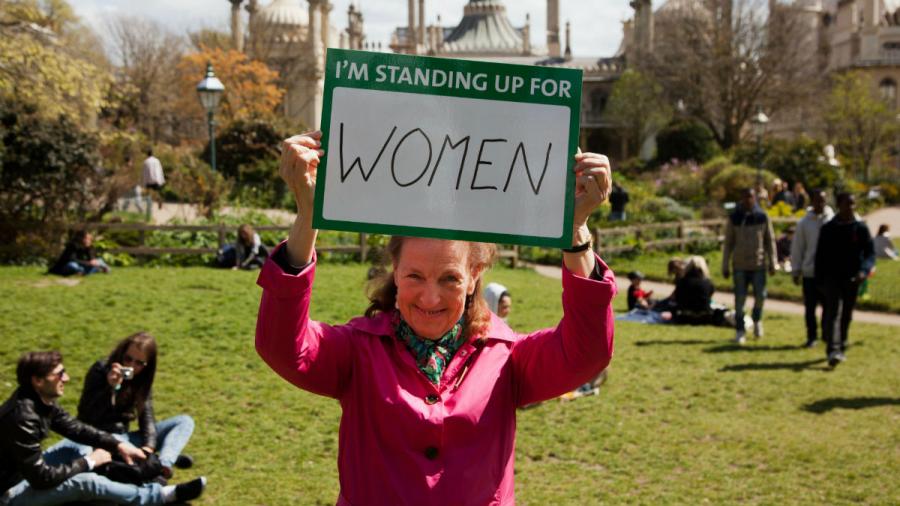- Equal rights in and out of the workplace
- Ending violence against Women
- Stop the sexism
It is almost a century since women won the vote in this country, but they are still being left behind.
The statistics speak for themselves.
Women still don’t have equal pay. Those working full-time earn 17% less on average than their male counterparts; for part-time workers the gap is 36%.
Women still don’t have equal representation. Fewer than 22% of Westminster MPs and fewer than 11% of board members on major British companies are women.
One in four women is subjected to domestic violence during her lifetime. Only six out of 100 cases of rape or sexual assault reported to police results in a conviction, and many cases are never reported.
Levels of violence against women and girls is at epidemic proportions and there is strong evidence that the media’s sexist portrayal of women is part of the problem.
Caroline is proud to call herself a feminist
- Highlighting the disproportionate impact of austerity on women
- Demanding an end to pay discrimination and proposing legislation guaranteeing that major companies’ boards are at least 40% female
- Calling for free child care provision for working women who need it and for vastly improved parental leave allowances
- Securing more family friendly sitting hours in the House of Common and backed the idea of MPs being allowed to job share
- Voting for women’s sexual health rights
- Leading the parliamentary campaign for mothers to be allowed to be named on their sons’ and daughters’ marriage certificates
- Exposing environmental health issues that affect women, such as breast cancer
- Fighting to hold Ministers and the Police to account for its policy of allowing undercover police officers to enter into relationships with women they are spying on
Ending violence against women
- Introduced a Bill that would ensure all young people get taught good quality, age appropriate sex and relationship education in school as part of a strategy to end violence against women and girls
- Secured a parliamentary debate to call for ending violence against women and girls to be made a foreign policy objective and for the Department of Education to take a lead on preventative work in our schools
- Joined One Billion Women Rising and the global campaign against violence against women and girls
- Campaigning to make domestic abuse a specific offence
- Working alongside a constituent to strengthen the stalking laws
- Parliamentary champion of a Women’s Aid campaign to protect refuges
- Petitioned the Prime Minister to tackle human trafficking
- Leading calls for a review of the prostitution laws, to better protect women
- Campaigning for a justice and immigration system that responds to the needs and rights of women subjected to domestic violence
Standing up for Women in Brighton
Caroline has joined together with a number of Brighton and Hove based women’s rights organisations to stand up for women, including RISE, Brighton Women’s Centre, the Survivor’s Network, Brighton Oasis Project and For Our Daughters, of which she is a patron.
On the 100th International Women’s day challenged the Government on its failure to properly fund gendered violence support services in Brighton and Hove.
Spot the sexism
Caroline kick started a parliamentary debate on the media’s objectification of women.
She defied the Westminster dress code and wore a No More Page 3 t-shirt to highlight the problem in Parliament and directly asked the Prime Minister to back the campaign.
She arranged for the Media Minister to meet with women’s groups to talk about the importance of training in media sexism and to underscore the link between women’s portrayal in the press and violence against women and girls.
When the newspaper hacking scandal led to the establishment of a new press regulatory regime, she successfully called for women’s rights groups to be allowed to make formal complaints about media coverage that is sexist.
She is actively involved in the ‘Spot the Sexism’ campaign, highlighting sexism in the media. She was a founding member of the Brighton Women’s Voices network and continues to stand up for women in Brighton, across the country and beyond.
